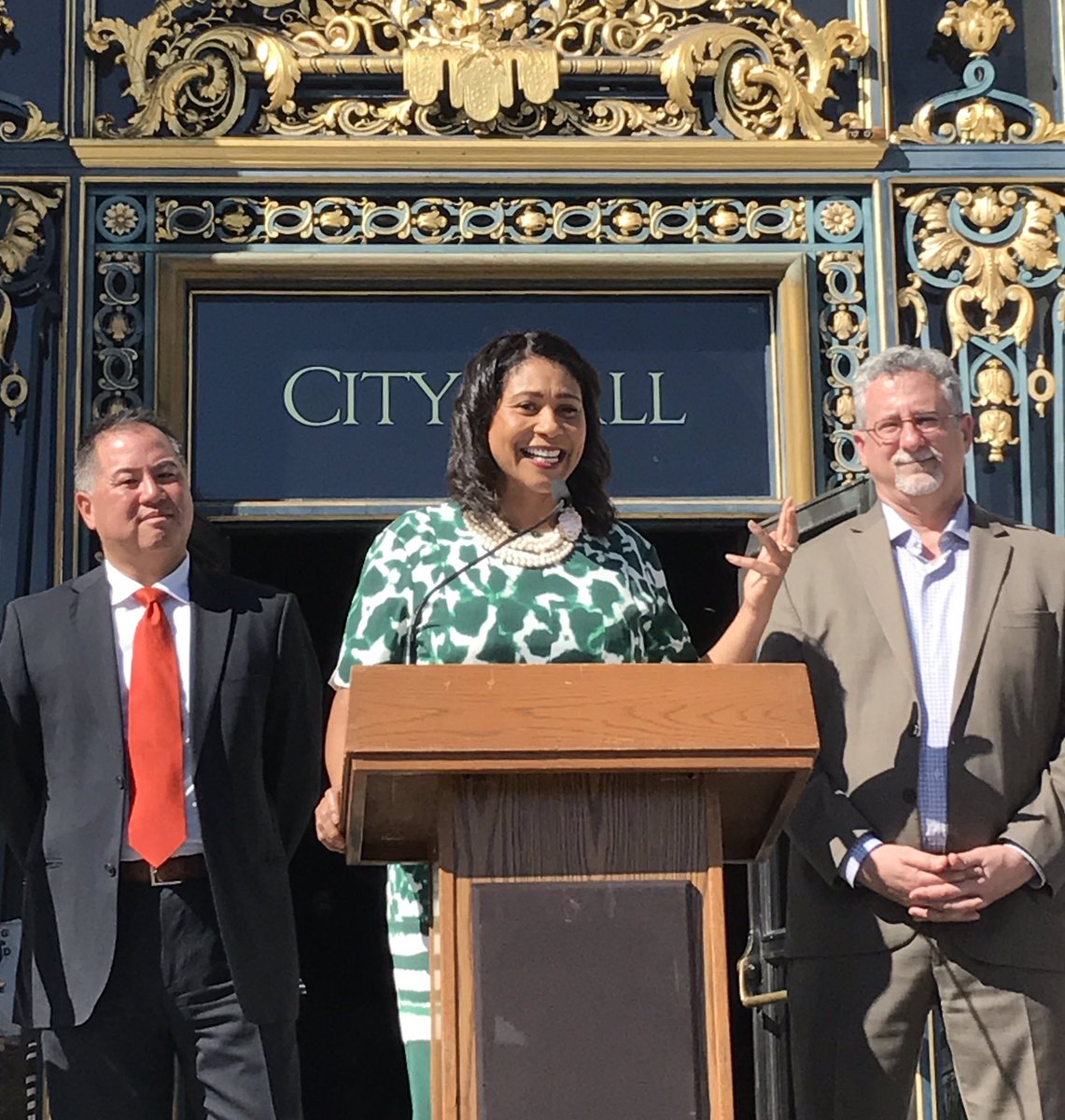American News
San Francisco native becomes city’s 1st black woman mayor

San Francisco native London Breed became the city’s acting mayor Tuesday following the sudden death of Mayor Ed Lee, and is the first African-American woman to lead the city in the midst of a seemingly endless technology driven economic boom. (Photo: London Breed/Twitter)
San Francisco native London Breed became the city’s acting mayor Tuesday following the sudden death of Mayor Ed Lee, and is the first African-American woman to lead the city in the midst of a seemingly endless technology driven economic boom.
Breed, 43, is a lifelong San Francisco resident who was raised by her grandmother in the city’s predominantly black and lower-income Western Addition neighbourhood, part of the same district she now represents as a city supervisor. She said she and Lee bonded over their shared experience of growing up in public housing.
“He was from the dawn of his career an advocate for the powerless,” Breed told reporters and a crowd of several hundred city workers who gathered to honour Lee in City Hall.
Breed, like Lee a Democrat, graduated from a San Francisco public high school and earned a bachelor’s degree from the University of California, Davis and a master’s degree in public administration from the University of San Francisco.
She got her start in politics as an intern in the city’s housing department during the tenure of Mayor Willie Brown that ended in 2004. Brown has not held public office since then but continues to exert considerable influence on city politics, and helped elect Lee.
Nationally, Breed’s political positions on issues like funding housing projects for the homeless and support for marijuana legalization are viewed as solidly liberal.
But within the insular politics of San Francisco, she has had to defend her credentials from attacks from the left that she is a moderate and beholden to Brown, Lee and other traditional Democrats.
She will remain acting mayor and board president of the supervisors unless a majority of the 11-member board votes to appoint another person, city attorney Dennis Herrera said. Herrera said San Francisco will now vote for a mayor in June 2018 rather than November 2019 election that was to take place at the end of Lee’s term.
Breed had been considered likely to run for mayor after Lee’s second — and last — term expired.
Breed won election to the board in 2012 after serving on the city’s redevelopment agency and fire commission. But she lost the backing of influential U.S. Sen. Dianne Feinstein when she responded to questions from a local news outlet with profanities, saying she was not controlled by anyone.
Her blunt-speaking ways have led to other political controversies, especially on Twitter where she enraged critics during her first months serving as a supervisor. At one point, she blamed some bicyclists for causing road safety problems.
After deleting her Twitter account for several months, Breed worked to soften her image and by 2015 lined up enough board votes to win the job leading the board.
Supervisor Malia Cohen nominated her for board president, an influential position that controls committee assignments and the board’s weekly agenda, saying she had seen Breed “mature” in the two years since her election.
“She was a brash hothead,” Cohen said to laughter during the meeting when Breed was appointed president. “But to watch her mature and grow into a leadership position has been amazing.”
Breed was appointed to another two-year term in April.
She is not expected to deviate from many current city policies, though her brash, outspoken style and her propensity to curse may contrast sharply with Lee’s consensus-building diplomacy and corny jokes.
Breed spoke last week in defence of the city’s so-called sanctuary city policy, which was criticized by President Donald Trump and others after a city jury acquitted a Mexican man of murder for the 2015 shooting death of Kate Steinle.
The man had been repeatedly deported but was allowed to stay after the San Francisco sheriff ignored a request to detain him so immigration officials could pick him up for a sixth deportation before Steinle’s death.
“What is making us unsafe in America is not immigrants. It never has been,” she said. “It is the far right’s callous disregard for the 30,000 Americans who die by guns every year. That is the issue we should be talking about.”





















